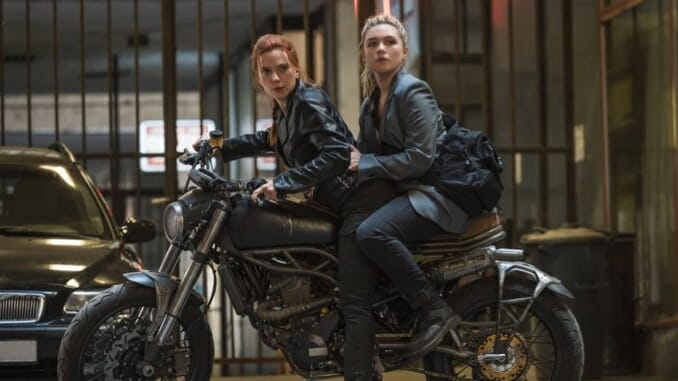Black Widow Crashes About without Ever Hitting Its Mark
For a movie buffeted by strange times and unprecedented circumstance, its flaws are all too familiar.

In many ways, Black Widow is a peculiar film, simultaneously relic and preface, an epilogue that occurs before the story ends, and, with Florence Pugh’s Yelena Belova, an introduction of another piece of the post-Phase 4 MCU. And it was all these things before COVID-19 pushed back its release way, way back.
It seems unlikely Black Widow was ever envisioned as more than a coda to the grand finale of Endgame, one that set up a baton exchange between Widows while doing what MCU movies do best—print box office money for the Mouse.
Yet in other ways, especially as relates to its genre-specific weaknesses, Black Widow is all too familiar.
Set after the events of Captain America: Civil War, Black Widow opens with a Widow on the run, and makes it clear her ability to hide comfortably outpaces the efforts of people like Thaddeus “Thunderbolt” Ross (William Hurt) to seek. The early scenes and overall plot arc of the film suggest a familiar—and savvy—approach by Kevin Feige and company.
Within the larger context of the MCU, and outside of the “gang’s all here” milestones of the Avengers movies, the individual films have worked best when all the costumed shenanigans have been placed within the conventions of established genres: Captain America: The Winter Soldier is a Cold War thriller, Ant-Man is a heist, and Guardians of the Galaxy and Thor: Ragnarok, space opera.
-

-

-

-

-

-

-

-

-

-

-

-

-

-

-

-

-

-

-

-

-

-

-

-

-

-

-

-

-

-

-

-

-

-

-

-

-

-

-

-








































